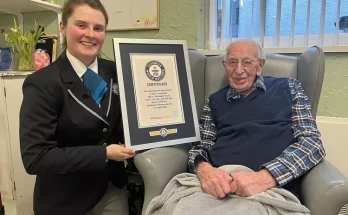
Actress Jenna Fischer has revealed she has been receiving treatment for breast cancer since December last year.
Best known for her role as receptionist Pam Beesly in the US version of The Office, Jenna said she was “now cancer-free” after surgery and multiple rounds of chemotherapy and radiation treatment.
“I’m happy to say I’m feeling great,” Jenna shared on Instagram, adding she was opening up about her treatment to encourage other people to check for signs of the disease.
“If I had waited six months longer, things could have been much worse,” she wrote.
Jenna, who also hosts the Office Ladies podcast, played Pam in the mockumentary series between 2005 and 2013 alongside Steve Carrell, who plays regional manager Michael Scott.
The much-memed series, based on a BBC series of the same name starring Ricky Gervais, is one of the most-watched shows on Netflix and repeatedly ranks among the most popular US sitcoms.

Jenna said her cancer was found after a routine scan in October 2023 which she said she’d been putting off.
“Seeing women post photos of their mammogram appointments on Instagram needled me into setting my own (which I was late for),” she wrote.
After that appointment, she said further tests found she had “stage 1 triple positive breast cancer”.
Jenna said that “luckily” her cancer was caught early but the tumour was aggressive so needed multiple rounds of treatment.
What is triple positive breast cancer?
There are a number of types of breast cancer and some, like triple positive, are known as hormone receptor-positive cancers.
This means the tumours are encouraged to grow by hormones, such as oestrogen, progesterone and a protein called HER2, that are found naturally in the body
These cancers are much more likely to respond to drug treatments that target these hormones to help stop the cancer cells dividing and growing.
Cancer Research says the term “triple positive breast cancer” is not widely used in the UK, instead being called “invasive breast cancer”.
Breast cancer is the most common type of cancer affecting women in the UK according to the NHS, but it can also affect men.
More than 50,000 people in the UK are diagnosed with it each year and figures from Cancer Research suggest one in every seven women in the country will be diagnosed in their lifetime.
It still claims the lives of more than 11,000 British people each year, but Cancer Research says survival rates are improving, with 76% of patients living for at least 10 years after diagnosis.



